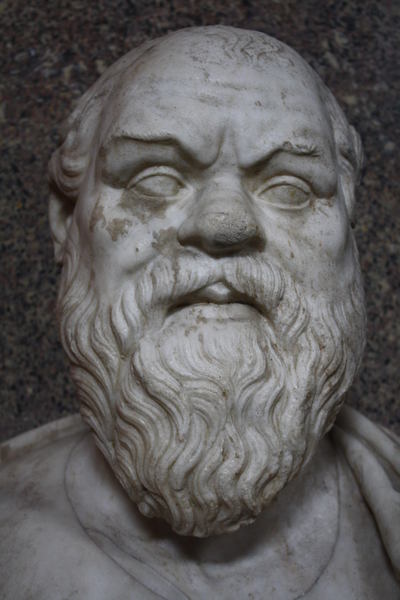As more and more philosophy instructors need to move classes online due to COVID-19, many of us are looking for help with teaching virtually. Mary Beth Willard (Weber State University) has shared some great general tips for quickly switching your course to an online format. It also makes sense to use resources that are already out there. I just assigned two podcasts from the History of Philosophy without any gaps to my History of Ancient Philosophy class, as the best way to introduce them to Aristotle, whom we are considering next. You should also check out (and add to) this spreadsheet (created by Liz Jackson (ANU) and Tyron Goldschmidt (Rochester)…
-
-
Ancient Philosophy Events and COVID-19 (Updated)
As COVID-19 spreads more and more widely, restrictions on public gatherings and on travel, especially international travel, continue to grow. Daily Nous has a post on the way philosophy events such as department talks and visits have been affected. You can also check this crowd sourced Google doc of cancelled academic conferences. If you know of an ancient philosophy event that has been cancelled or postponed, please contact me and I will update the ancient philosophy events calendar appropriately. Also, if anyone is moving their event online or hosting new online events, please share them! There are lots of people looking for ways to stay connected. Invicem succurrite et valete!
-
Publons and Recognizing Peer Review
Peer review is the foundation of our whole system of recognizing and sharing scholarship. At the same time, it consists of unpaid labor that is rarely rewarded or recognized, though some efforts are now being made. Its burden also falls disproportionately on the conscientious who are more likely to respond to requests and to do a decent job as reviewers. Those who ignore invitations to review or do such a poor job that they will not be asked again can free ride on the system. We need better ways to incentivize scholars to do their fair share of peer review. Publons, a website that tracks peer reviews and works with…
-
New Scholarly Society: The International Society for Socratic Studies
Readers will be interested to learn about this new scholarly society and consider becoming a member. Here is the announcement from Donald Morrison (current president, Rice): The International Society for Socratic Studies has been formed to promote Socratic studies throughout the world. We are devoted to Socratic Studies in all its aspects, drawing on the full range of ancient sources and authors, and using a variety of approaches and methods. The Society is similar in structure to the International Plato Society (now 30 years old), and the International Association for Presocratic Studies. We will sponsor a major triennial conference every three years, support other smaller conferences in between, and promote publications…
-
New Initiative: History of Philosophy Forum at the University of Notre Dame
Readers will be interested to hear about the following initiative. Thanks to Therese Scarpelli Cory, Director of the History of Philosophy Forum and John and Jean Oesterle Associate Professor of Thomistic Studies in the Department of Philosophy at the University of Notre Dame, for passing this on: The Philosophy Department of the University of Notre Dame is pleased to announce the inauguration of the History of Philosophy Forum, for the purpose of facilitating research and collaboration among scholars working in the history of philosophy. To that end, the History of Philosophy Forum (1) organizes an annual colloquium examining a philosophical theme across different periods in the history of philosophy, (2) hosts a Distinguished…
-
Update to Ancient Philosophy Journal Listings
I have updated my ancient philosophy journal listings to more prominently include several generalist journals on the first sheet: Australasian Journal of Philosophy, Ergo, Philosophers’ Imprint, and Philosophical Quarterly. These journals are all well-regarded and have quick turnaround times, with all of them averaging less than 2.5 months to decision. They have also all fairly consistently published articles on Greek and Roman philosophy and are committed to doing so. Both Ergo and Philosophers’ Imprint are open access, without requiring the author to pay any fees (though Philosophers’ Imprint does have a $20 USD submission fee). Ergo is also triple anonymous, so that neither editors nor referees know the identity of…
-
Journal Experiences and Time Frames, September 2019 Update
Last December, I highlighted what recent public surveys submitted to the APA Journal Surveys project indicate about the editorial experience at journals that specialize in ancient philosophy and the history of philosophy. I excluded generalist journals that also publish some articles in ancient philosophy, both because there are a large number of these and because the survey aggregates may diverge from the experience of those submitting ancient philosophy papers (there’s no way to filter experiences based on topic). I’m now writing to update those results. Again, we should start with some caveats: 1) many ancient philosophy journals from my journals listing are not included because they have no submitted surveys 2)…
-
Online texts and resources for ancient philosophy scholars
Many of us don’t own or have access to print copies of the full range of classical texts, so I thought it would be worth highlighting some online resources for the ancient philosophy scholar. Most readers are probably already aware of the Thesaurus Linguae Graecae collection of Greek texts and the Perseus collection of Greek and Roman materials. You should also take note of Répertoire des sources philosophiques antiques, a source I recently discovered. This site has bibliographic information and links for critical editions, commentaries, and translations into modern languages, covering over 700 ancient authors and 1200 ancient texts. Readers should also note that the Loeb Classical Library, including the…
-
Jobs with Ancient AOS over Previous Five Years
Aero Data Lab, “a collaboration of scientists, ethicists, and policy-makers interested in improving the quality of the clinical research enterprise,” has published an analysis of trends in the academic philosophy job market over the past six years. The analysis, by Spencer Hey (Harvard Medical School, Brigham and Women’s Hospital), tracks changes in the number of academic positions advertised for different areas of specialization in philosophy, based on data from PhilJobs. I thought readers might be interested in the specific numbers for ancient philosophy, which are included on the chart below. The yearly numbers are within a fairly narrow range and there is little evidence of any strong trends either upwards or downward. Of course,…
-
Sarah Broadie awarded an OBE
Sarah Broadie, professor at St. Andrews, author of seven books and dozens of articles on ancient philosophy, has been awarded an OBE. She is well known for her books on Aristotle’s Physics (Nature, Change, and Agency in Aristotle’s Physics: a philosophical study) and Nicomachean Ethics (Ethics with Aristotle). Of the award, she said: “It’s a great pleasure to me that our subject of classical philosophy should receive this recognition.”



